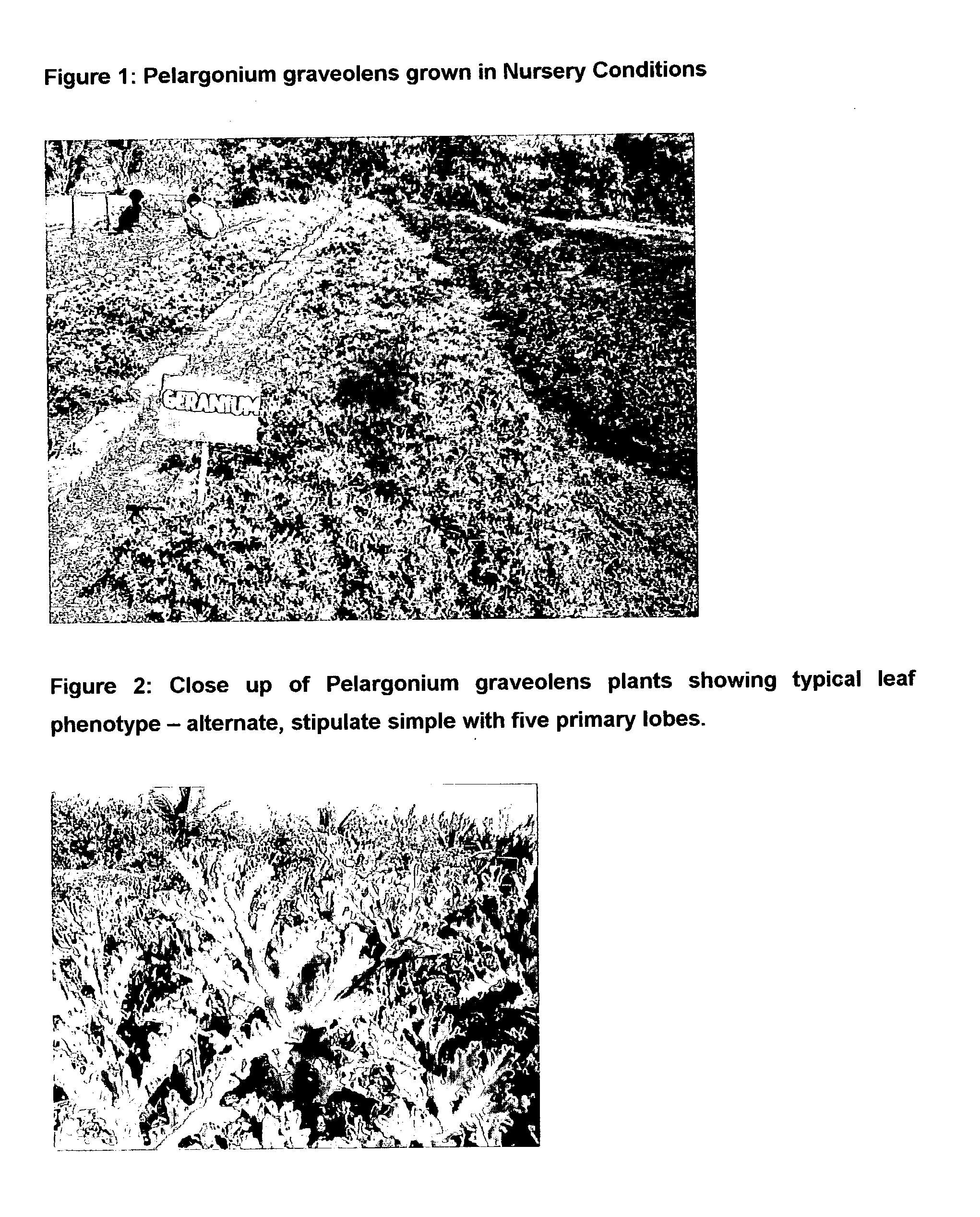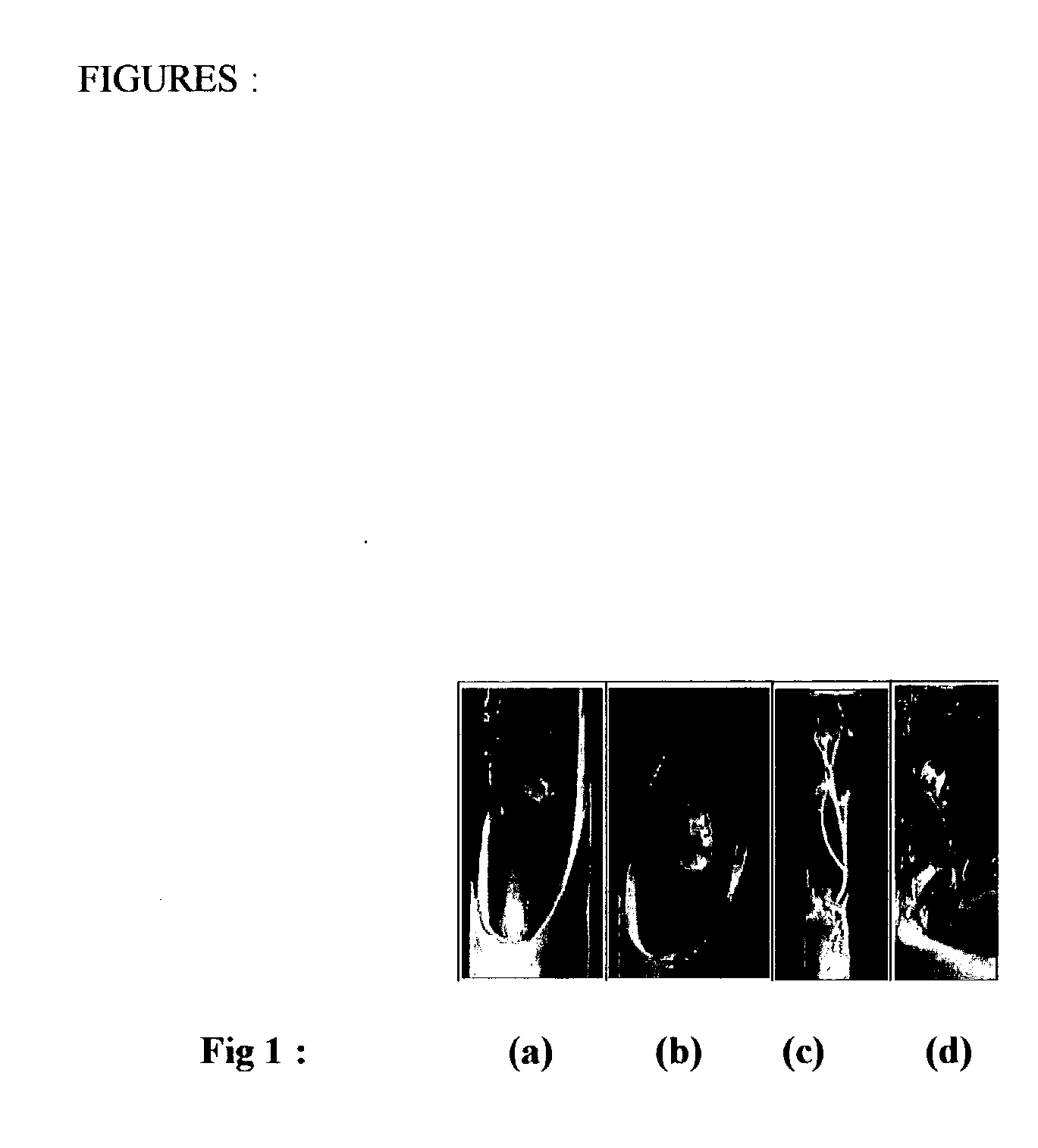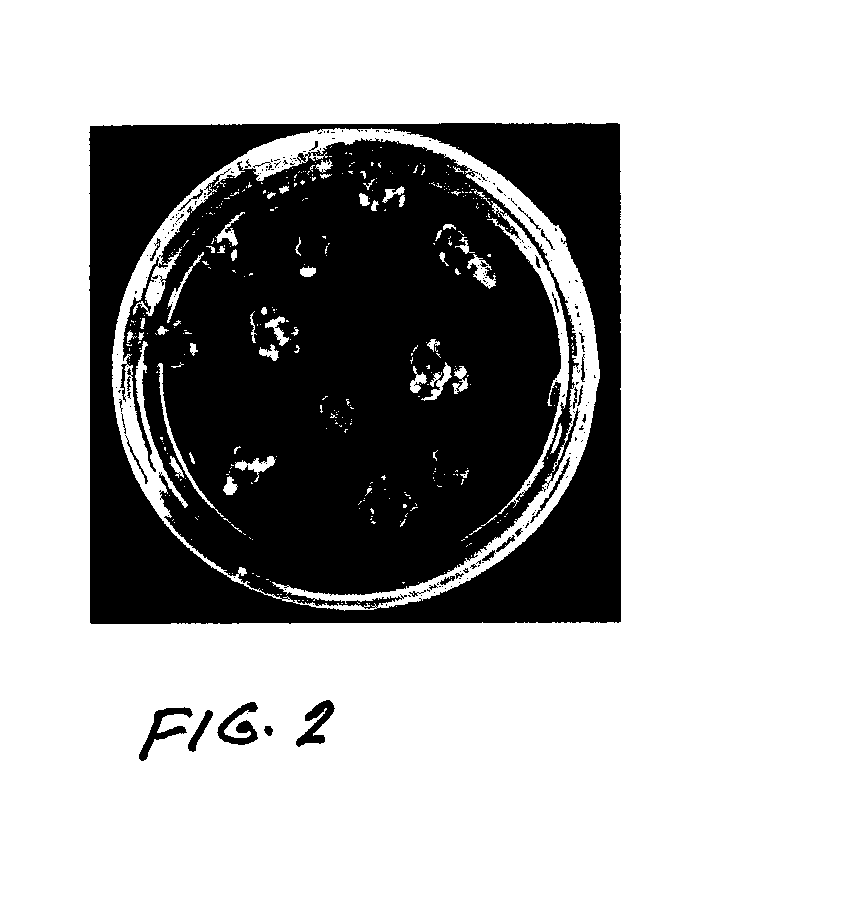Development of a highly efficient in vitro system of micropropagation of solanum viarum
a technology of in vitro micropropagation and solanum viarum, which is applied in the field of development of a highly efficient in vitro system of micropropagation of solanum viarum, can solve the problems of low research on the potential of common weeds, cumbersome extraction process, and plant performance in very clayey soils, and achieve the effect of lowering the production cost of commercial propagation
- Summary
- Abstract
- Description
- Claims
- Application Information
AI Technical Summary
Benefits of technology
Problems solved by technology
Method used
Image
Examples
example 1
[0111] Identification of Explant:
[0112] According to the present invention to identify the explant with best regeneration and differentiation capacity, following experiment was conducted,
[0113] Various explants namely leaf, stem, petiole and nodal segment were excised from the field grown plants or plants grown aseptically from the seeds in culture tubes in controlled environment. The explants were cleaned by washing with mild detergent like 0.01-0.2% Tween -20 followed by washing with distilled water. In order to remove the fungus or bacterial contaminants from the surface of the explants they were washed with systemic fungicide bavistin 0.01-0.2%, contact fungicide Indofil M-45 0.01-0.2%, systemic insecticide Nuvacron 0.01-0.2% and after each wash they were rinsed with distilled water to remove fungicide and insecticide. The explants were surface sterilized by treating the explant under laminar flow with mercuric chloride solution 0.01-1% for 2-10 minutes period, followed by multi...
example 2
[0114] Solanum viarum seeds collected from self pollinated plants grown in controlled environment in green house were washed with distilled water, followed by 0.1% of Tween-20 for 5 minutes and final wash with distilled water. The seeds were treated with a disinfectant solution comprising bavistin 0.1%, Indofil M-45 0.1% and Nuvacron 0.1%, for 10 minutes and repeatedly washed with sterilized distilled water, followed by immersing in 70% ethyl alcohol for 5 minutes and washing with autoclaved distilled water three times each lasting for 5 minutes.
[0115] The seeds were then sterilized under laminar flow with 0.01% mercuric chloride for five minutes, followed by washing with sterilized distilled water for 5 times each lasting for 5 minutes to ensure that there is no residual left over of mercuric chloride on the seeds. Seeds under laminar flow, with the help of forceps, were placed onto Murashige & Skoog basal medium supplemented with sucrose 3% w / v and agar 0.8% w / v. for germination. ...
example 3
[0122] Micropropagation of Solanum viarum was carried out as per the method illustrated in example 2, as a whole, except for the initiation medium, wherein the composition contained MS medium modified to have 500 mg per liter of inositol, 3 mg per liter of kinetin and 1 mg per liter of Naphthalene acetic acid.
PUM
 Login to View More
Login to View More Abstract
Description
Claims
Application Information
 Login to View More
Login to View More - R&D
- Intellectual Property
- Life Sciences
- Materials
- Tech Scout
- Unparalleled Data Quality
- Higher Quality Content
- 60% Fewer Hallucinations
Browse by: Latest US Patents, China's latest patents, Technical Efficacy Thesaurus, Application Domain, Technology Topic, Popular Technical Reports.
© 2025 PatSnap. All rights reserved.Legal|Privacy policy|Modern Slavery Act Transparency Statement|Sitemap|About US| Contact US: help@patsnap.com



